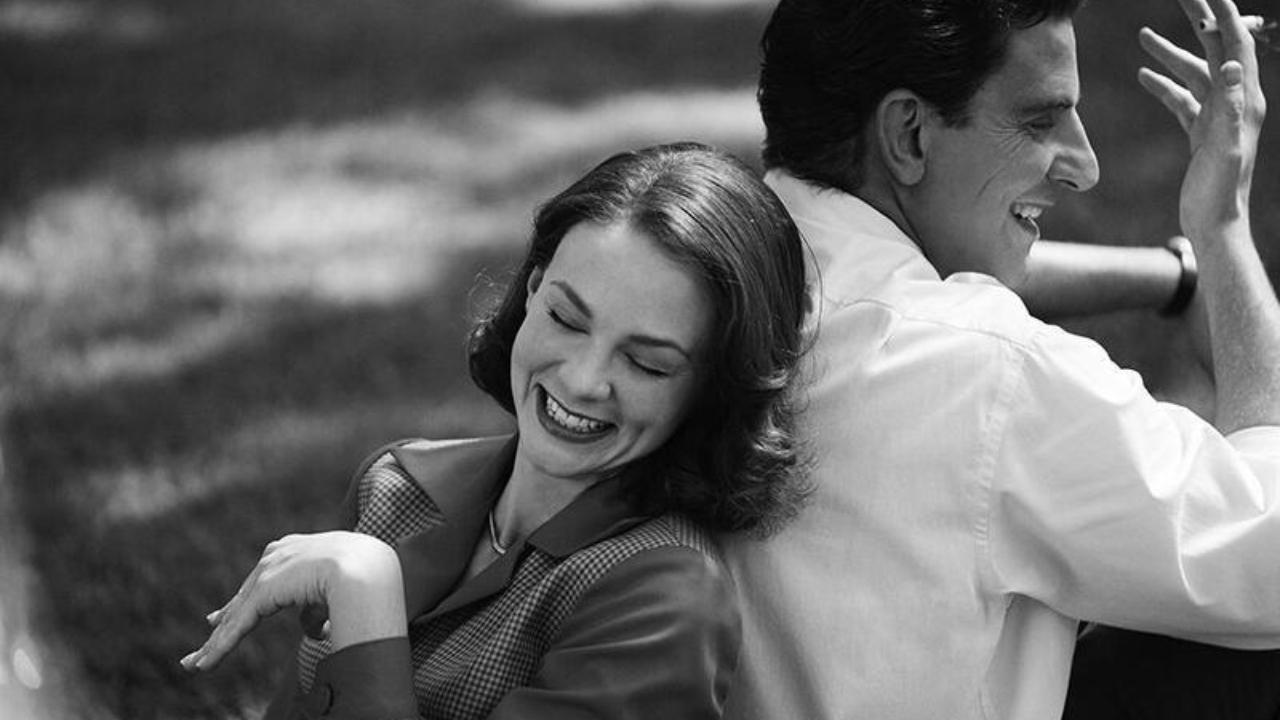Home / Entertainment / Hollywood News / Article /
Maestro movie review: Brilliant performances rule this classic engagement
Updated On: 23 December, 2023 05:08 PM IST | Mumbai | Johnson Thomas
Masterfully put together with an empathy and objectivity that is pretty hard to come by, this film takes us deep into the marriage of a supremely gifted and talented individual who is also bisexua

Maestro movie review
Film: Maestro
Cast: Bradley Cooper, Carey Mulligan, Matt Bomer, Gideon Glick, Maya Hawke, Sarah Silverman
Director: Bradley Cooper
Writer: Bradley Cooper & Josh Singer
Rating: 4/5
Runtime: 128 mins
Bradley Cooper’s second directorial effort, ‘Maestro,’ post his stunning awards garnering debut directorial ‘A Star is Born’ has all the makings of a classic. This biopic is also a love story that chronicles conductor-composer Leonard Bernstein’s life and relationships - especially the lifelong one with his wife, actress Felicia Montealegre Cohn Bernstein. It’s their marriage and family life that takes central focus here while the music plays second fiddle to the ups and downs in their relationship.
Masterfully put together with an empathy and objectivity that is pretty hard to come by, this film takes us deep into the marriage of a supremely gifted and talented individual who is also bisexual. The thing is Felicia (Carey Mulligan) knew what she was getting into right from the start (duly warned by his sister no less), yet it was a difficult lie to live through for her - especially because in the fifties and sixties, being gay wasn’t something one could openly talk about in public. And there were plenty of rumors swirling around the celeb couple as Bernstein wasn’t very discrete about his love. His easy camaraderie with kids comes through beautifully, as does his despondency on not being able to compose as much as he would have wanted to.
The film doesn’t tell us much about his musical career ( West side Story and Missa Brevis are bandied about, while his On the Waterfront and other compositions vie for space in the background score), his childhood, his years at Harvard, his work in Europe or his life as an early adult. The film goes back to his early twenties and the life-changing moment when he gets the call to conduct the New York Philharmonic at Carnegie Hall as last minute stand-in for Bruno Walter. We get to hear the orchestral work for ‘Candide’ but we don’t know much about how he got inspired to compose it. A stray conversation gives us an in into his horrible childhood and a father whom he hated. While there are no overtly sexual sequences, we do get to know of his bisexuality, penchant for younger men, and his role as a conductor and composer.
This biopic of arguably one of the greatest American composers, if not the world, doesn’t focus on his life in its entirety. We get to see loosely connected vignettes from his life, jumping around in time, shifting in and out from color to Black and White and back to color. The non-linear narrative gets snippet- happy with crucial moments from his life and a little bit from his work. Cooper effectively uses overhead shots and mise-en-scene transitions to tie in the past with the present.
While the writing and direction are exemplary, it’s the performances that make this portrait of his hedonistic life and loves, heart-warming, intimately engaging, and worthy. Bradley Cooper immerses himself so completely into being Bernstein that you mightn’t be able to differentiate one from the other.He gets it all so perfect, aided by crafty costuming, make-up and brilliantly realistic prosthetic work by Kazu Hiro. Cooper nails the look, tone, pitch, and conducting style brilliantly. Carey Mulligan (as Bernstein’s wife) deserves accolades for putting up a performance that holds you in its sway all through. Mulligan doesn’t play Felicia as a victim, instead, she shows us how Felicia has given away of herself to support Bernstein’s musical genius. Her realisation and ongoing sorrow come through effectively. Matt Bomer as musician David Oppenheim, Bernstein’s friend and one-time lover, also gives one of his best moments to this telling. We see the heartbreak in his eyes when he realises that he will never again be the central character in Bernstein’s life. The long takes allow you to immerse yourself deeper into their story.
Production design helps secure conviction for every shift in the period - from the Forties to the late Eighties. Cinematographer Matthew Libatique wields his camera with sweeping agility allowing us to get deeply entrenched in the mood and moments. The sound design and editing by Michelle Tesoro, are also top-notch. This technically dazzling film is definitely a worthy watch!



